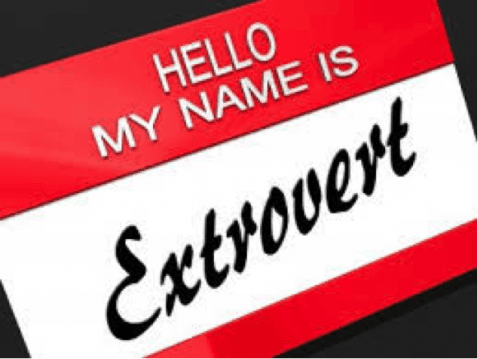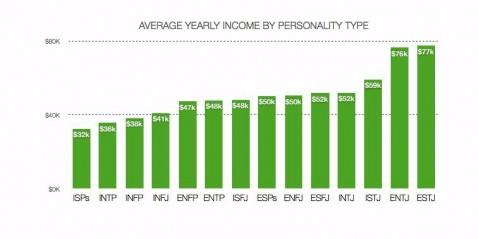Which Personality Type Earns a Higher Income?
AH
Last updated 03/08/2024 by
Audrey HendersonWho earns more money, introverts or extroverts? If you said extroverts, you were correct. Extroverts score higher on both job satisfaction and income than introverts, according to the results of surveys conducted in April 2015 by Truity Psychometrics. That’s in no small part because extroverts make up a majority of the American population – by some estimates as much as 74 percent.
Get Competing Personal Loan Offers In Minutes
Compare rates from multiple vetted lenders. Discover your lowest eligible rate.
It's quick, free and won’t hurt your credit score
 So, who really earns more?
So, who really earns more?
But not all extroverts are equal when it comes to income. Specifically, ENTJs and ESTJs earn way more than everybody else. According to the results from the Truity surveys, annual salaries for ESTJs averaged 77,000 dollars while ENTJs averaged salaries of 76,000 dollars annually. ISTJs and INTJs were next in line but far behind their ENTJ and ESTJ counterparts, with annual salaries of 59,000 dollars and 52,000 dollars, respectively. By contrast, ISFPs averaged a paltry 32,000 dollars, the lowest of all groups.
The MBTI and career success
The Myers-Briggs Type Indicator (MBTI) personality test measures four major areas of personality: Extroversion or Introversion, Sensing or iNtuition, Thinking or Feeling, and Judgment or Perception. There are 16 personality types designated by the MBTI personality test: ISTJ, ISFJ, INFP, INTJ, ISTP, ISFP, INFP, INTP, ESTP, ESFP, ENFP, ENTP, ESTJ, ESFJ, ENFJ, and ENTJ. The MBTI classifies these 16 categories into four major temperaments: Protectors (SJ), Creators (SP), Intellectuals (NT), and Visionaries (NF).
Traditionally, the MBTI personality test has been used by career counselors to help individuals find suitable lines of work. But the Truity results suggest that the MBTI can actually be a predictor of ultimate career success. What the MBTI personality test and Truity survey results may actually be measuring is a reflection of the advantage that extroverts hold in the American labor market.
Extroverts are more likely to be gregarious, to enjoy networking, and project an energetic, appealing image to interviewers and co-workers. By contrast, introverts can give the impression of being aloof or even uncooperative – not to mention the fact that introverts often loathe small talk — a staple of many networking events.
 Earning more despite your MBTI category
Earning more despite your MBTI category
If you’re an introvert, that doesn’t mean that you must resign yourself to low wages throughout your career. What it does mean is that you should be especially careful about ensuring that the jobs you take and the companies you work for are a good fit for how you prefer to work. Plain English translation? Don’t just grab the first job that’s offered to you unless you are truly desperate for an income.
You may also consider being your own boss. You’ll have more control over your working environment, which suits many introverts to a “T.” As an introvert, you also shine at building solid, long-term relationships and have the drive and focus necessary to see a vision through the long term – both traits that are common in successful entrepreneurs.
AH
Audrey Henderson is a Chicagoland-based writer and researcher. She holds advanced degrees in sociology and law from Northwestern University. Her writing specialties are sustainable development in the built environment, policy related to arts and popular culture, socially and ecologically responsible travel, civic tech and personal finance.
Share this post: